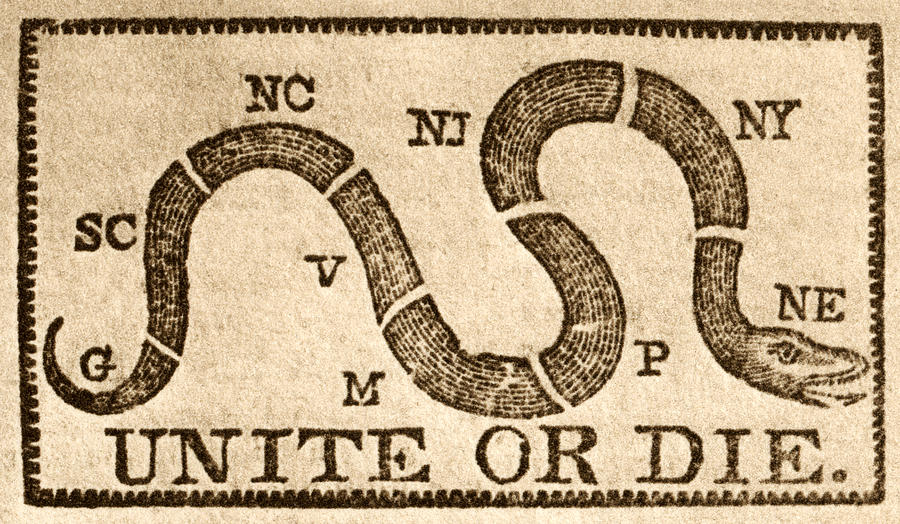Resist Tyranny: The Power of Armed Defense
- Nov 24, 2020

The past two weeks, we have discussed two methods of resisting tyranny. You can use your voice to speak out against it. If that doesn’t work, it might be prudent to make a tactical retreat from the situation. But if all else fails, it may be time to defend against it.
Life, liberty, and the pursuit of happiness
America’s founders spent years petitioning King George III for relief against his authoritarian rule. When using their voice didn’t affect change, and having nowhere else to retreat, they chose option 3 when they signed the Declaration of Independence:
“Our repeated Petitions have been answered only by repeated injury. A Prince whose character is thus marked by every act which may define a Tyrant, is unfit to be the ruler of a free people.”
The colonists’ repeatedly tried to improve their situation, but the king rebuffed their attempts. From taxation without representation to the Stamp Act and Townshend Acts to repeated dissolution of the colonial Representative Houses, the colonists listed a total of 27 grievances in the Declaration of Independence outlining the reasons behind their decision to separate.
On April 18, 1775, the British marched to confiscate an arms cache in Concord, and colonial militiamen assembled to intercept them. The two sides met up in Lexington, a confrontation ensued, starting the American War for Independence. The Colonial forces finally won the war in 1783, and America was officially a free country.
This. Is. Sparta!
As Persian King Darius I sought to expand his kingdom, he sent emissaries to countries asking for tributes of earth and water as tokens of submission. When his ambassadors got to Greece, most of the city-states obliged. Athens, however, tried and executed the emissaries, while Sparta didn’t even go that far and just threw them down a well.
Darius’s son-in-law led the king’s army into Greece. But after setbacks from weather and harassing attacks, they retreated back to Asia. Darius then sent another army, led by Admiral Datis and Darius’ nephew, Artaphernes. They were defeated by the Greeks at the Battle of Marathon in 490 BC.
A revolt in Egypt delayed Darius’ planned invasion and he died in 483 BC before he could do that. His son and successor, Xerxes, led the invasion, sending ambassadors asking for offerings of earth and water from each Greek state, bypassing Sparta and Athens due to their treatment of his father’s emissaries. Instead of consolidating power against the two regions, however, the plan backfired and united the Greeks against the new Persian king.
In Sept 480 BC, Xerxes marched into Greece via Thermopylae, where he was met by a combined force of 7,000 Spartans, Thesbians, Helots, and Thebans. The vastly outnumbered Greeks held off the Persian army for seven days before being outflanked. A force of at least 300 Spartans and 700 Thesbians remained to cover the Greek retreat. They perished defending their homeland from the tyranny of a foreign king.
Xerxes tried twice more to conquer Greece and his forces lost both times at the Battles of Salamis and Battle of Plataea in 479 BC. The Greek victories turned the tide and they took the fight to their enemy, ending Persian ambitions on Greece.
Government is a force
It’s been said that there are four boxes of liberty: the soap box, the ballot box, the jury box, and the cartridge box. Each of these represents an escalation in resisting tyranny:
- The right to one’s voice and vote, both of which fall under free speech
- The right to judge both law and fact via what’s known as jury nullification
- The right of the people to take up arms and defend against tyranny
America's literal foundation was based on taking up arms against a tyrannical king after the colonists had tried all else. The important point to remember is that defending against tyranny shouldn’t be the first option, but the last.
“Government is not reason, it is not eloquence—it is a force! Like fire, it is a dangerous servant and a fearful master; never for a moment should it be left to irresponsible action.” - George Washington
The Americans were a British colony, so they tried diplomacy and using their voice, but that failed. They had nowhere to retreat, so they took up arms and fought for their freedom and right to defend their liberty. The Greeks weren’t going to be invaded and they had no duty to retreat from their homes. So when Persia decided to invade, the Greeks fought the “tyranny of the mob” to defend their freedoms.
Government tyranny may take a long time to escalate from option 1 to option 3. The tyranny of an angry mob, however, might go straight to 2 and 3, with option 1 not being an option at all. In this case, tactically retreat if you can, but if not, then you have the God-given right to defend yourself and loved ones.
Whether it’s using your voice, tactically retreating, or defending against it, free men must remain ever vigilant against tyranny and authoritarianism, wherever it comes from.














